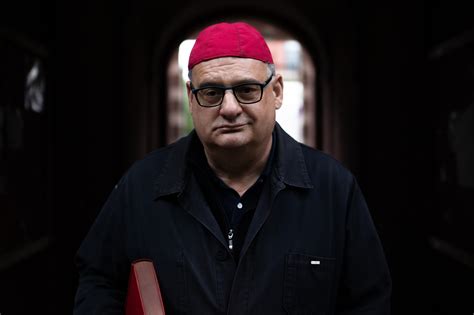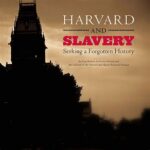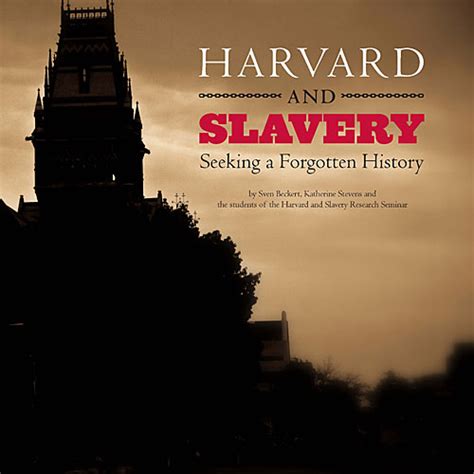
Harvard University faces scrutiny amid allegations that research into its historical ties to slavery may have contributed to the departure of a lead researcher, raising questions about academic freedom and institutional accountability.
Harvard University is under increased scrutiny following claims that research into the institution’s historical connections to slavery may have played a role in the departure of a key researcher, sparking a debate on academic freedom and institutional responsibility. Cris Martin, a researcher hired by Harvard to investigate the university’s ties to slavery, alleges his contract was not renewed after he unearthed uncomfortable truths, according to reports. This has prompted questions about whether Harvard is truly committed to transparency and reconciliation regarding its past involvement in slavery. The university, which publicly committed to a $100 million fund to redress its historical links to slavery, now faces criticism for potentially silencing research that reveals the full extent of its complicity.
Martin’s work was part of a broader effort by Harvard to confront its history. In 2022, Harvard released a comprehensive report detailing the university’s extensive entanglement with slavery. The report, compiled by a committee appointed by Harvard President Lawrence Bacow, revealed that Harvard presidents, faculty, and staff enslaved over 70 individuals from the university’s founding in 1636 to 1783. The report also documented how the university benefited financially from slavery and the slave trade through donations from wealthy benefactors who made their fortunes through these activities.
Martin’s specific research focused on uncovering the less publicized aspects of Harvard’s involvement. He delved into archival records to trace the financial benefits Harvard derived from slavery, examining endowments, scholarships, and building projects that were funded through profits from the slave trade and slave labor. He also investigated the personal wealth of Harvard’s leaders and faculty, many of whom owned slaves or invested in slave-related industries.
According to Martin, his research began to face resistance as he uncovered more sensitive information. He claims that certain university officials expressed discomfort with his findings and attempted to limit the scope of his investigations. Martin also suggests that his contract was not renewed as a direct result of his research uncovering inconvenient truths about Harvard’s past. Harvard has not directly commented on Martin’s specific allegations, citing personnel matters.
The controversy surrounding Martin’s departure has ignited a broader debate about academic freedom and the role of universities in confronting their histories. Advocates for academic freedom argue that researchers should be free to pursue their inquiries without fear of reprisal, even if their findings are critical of the institutions that employ them. They contend that universities have a responsibility to protect academic freedom and to ensure that researchers are not penalized for uncovering uncomfortable truths.
Critics of Harvard’s handling of Martin’s case argue that the university’s commitment to reconciliation is being called into question. They argue that if Harvard is serious about addressing its historical ties to slavery, it must be willing to fully disclose the extent of its involvement, even if it is damaging to its reputation. They also argue that Harvard should support researchers who are working to uncover the truth about its past, rather than silencing them.
The controversy comes at a time when many universities across the United States are grappling with their historical ties to slavery and racial injustice. Institutions such as Georgetown University, the University of Virginia, and Brown University have all undertaken similar efforts to examine their past and to make amends for their historical wrongs. These efforts have often been met with resistance from some quarters, but they have also been praised by those who believe that universities have a moral obligation to confront their histories.
Harvard’s handling of Martin’s case will likely have implications for other universities that are engaged in similar efforts. If Harvard is seen as silencing research that is critical of its past, it could discourage other researchers from pursuing similar inquiries. It could also undermine the credibility of universities that claim to be committed to reconciliation.
The situation highlights the complexities and challenges that universities face when grappling with their historical ties to slavery. It underscores the importance of transparency, academic freedom, and institutional accountability. It also raises questions about the role of universities in shaping public understanding of history and in promoting social justice.
Harvard’s initial report on its ties to slavery offered several recommendations, including increased support for educational opportunities for descendants of enslaved people, the establishment of a memorial to those enslaved by Harvard community members, and ongoing research into the university’s history. The university pledged $100 million to implement these recommendations. However, the controversy surrounding Martin’s departure raises questions about whether Harvard is truly committed to these efforts.
The specifics of Martin’s research remain largely undisclosed due to non-disclosure agreements and the university’s reticence to publicly address the situation. However, sources familiar with his work suggest that he was uncovering details about specific financial transactions and personal connections that implicated prominent figures in Harvard’s history. These details allegedly painted a more comprehensive and unflattering picture of Harvard’s entanglement with slavery than the university was prepared to acknowledge publicly.
The debate extends to the broader issue of how universities should handle sensitive historical research. Some argue that universities should prioritize the protection of their reputation and avoid publicizing information that could damage their image. Others argue that universities have a moral obligation to disclose the truth about their past, regardless of the consequences.
The outcome of this controversy could set a precedent for how other universities approach similar issues in the future. It could also have a significant impact on the credibility and reputation of Harvard University. As the debate continues, it is clear that Harvard faces a difficult challenge in balancing its commitment to reconciliation with its desire to protect its image. The coming weeks and months will be critical in determining whether Harvard can successfully navigate this challenge and restore trust in its commitment to transparency and accountability.
Additional Details and Context:
The initial report from Harvard detailed several key findings:
- Extensive Involvement: Harvard presidents and other university leaders enslaved more than 70 people, some of whom lived and worked on campus.
- Financial Benefits: The university directly benefited from the slave trade and related industries through donations from wealthy benefactors and investments in slave-produced commodities.
- Intellectual Justification: Harvard faculty members contributed to the intellectual justification of slavery through their scholarship and teaching.
- Exclusion and Discrimination: Even after the abolition of slavery, Harvard continued to discriminate against Black students and faculty.
Harvard’s stated commitment to redressing its historical ties to slavery includes:
- Increased Educational Opportunities: Providing scholarships and other forms of support for students from underrepresented backgrounds, particularly those with ties to communities impacted by slavery.
- Memorialization: Creating a physical memorial on campus to honor those enslaved by Harvard community members.
- Ongoing Research: Continuing to support research into Harvard’s history and its ties to slavery.
- Community Engagement: Engaging with descendant communities and other stakeholders to develop and implement redress initiatives.
The allegations surrounding Cris Martin’s departure raise questions about the implementation of these commitments. Critics argue that Harvard’s actions suggest a lack of genuine commitment to transparency and accountability. They contend that the university is more interested in managing its reputation than in fully disclosing the truth about its past.
The controversy also highlights the challenges of historical research. Uncovering sensitive information about the past can be difficult and time-consuming. It can also be emotionally challenging for researchers who are confronted with the realities of slavery and racial injustice. Universities have a responsibility to support researchers who are engaged in this work and to protect them from retaliation.
The issue of academic freedom is central to this debate. Academic freedom is the principle that researchers should be free to pursue their inquiries without fear of censorship or reprisal. This principle is essential for the advancement of knowledge and the pursuit of truth. When universities restrict academic freedom, they undermine their credibility and their ability to serve the public good.
Harvard’s handling of Martin’s case will be closely watched by other universities that are grappling with their historical ties to slavery. The outcome of this controversy could have a significant impact on the future of historical research and the pursuit of racial justice in higher education.
The specific areas of Martin’s research that allegedly caused friction included:
- Tracing the Endowments: Mapping the specific sources of Harvard’s endowment funds and identifying the extent to which they originated from slave-related activities, including sugar plantations, cotton production, and the slave trade itself.
- Identifying Benefactors: Investigating the personal histories of prominent Harvard benefactors and revealing their direct or indirect involvement in slavery. This included examining their business dealings, property ownership, and family connections.
- Analyzing University Investments: Scrutinizing Harvard’s investment portfolios over time to determine the extent to which the university profited from companies and industries that relied on slave labor.
- Documenting the Lives of Enslaved People: Reconstructing the lives of the individuals who were enslaved by Harvard community members, including their names, ages, occupations, and experiences. This involved searching through archival records, census data, and other historical sources.
- Examining Intellectual Justifications: Analyzing the writings and teachings of Harvard faculty members who defended or rationalized slavery, and exploring the impact of their ideas on the university and the wider society.
The alleged limitations placed on Martin’s research included:
- Restrictions on Access to Archives: Limiting his access to certain archival collections or specific documents that were deemed too sensitive.
- Editorial Control: Attempting to influence the content of his research reports or publications to minimize the negative impact on Harvard’s reputation.
- Pressure to Focus on Positive Aspects: Encouraging him to focus on the positive aspects of Harvard’s history or to downplay the significance of its ties to slavery.
- Lack of Support: Withholding resources or support that were necessary for him to complete his research.
The controversy surrounding Martin’s departure has raised several legal and ethical questions:
- Breach of Contract: Whether Harvard violated the terms of Martin’s employment contract by failing to renew it without just cause.
- Academic Freedom: Whether Harvard infringed on Martin’s academic freedom by attempting to restrict his research.
- Whistleblower Protection: Whether Martin is entitled to protection as a whistleblower for disclosing information about alleged wrongdoing at Harvard.
- Duty of Disclosure: Whether Harvard has a legal or ethical duty to disclose the full extent of its ties to slavery, even if it is damaging to its reputation.
The implications of this case extend beyond Harvard University:
- Impact on other universities: It could influence how other universities approach similar issues in the future.
- Public Trust: It could affect public trust in higher education and the willingness of donors to support universities.
- Racial Justice: It could have implications for the broader struggle for racial justice and equality.
Harvard has faced similar criticisms in the past regarding its handling of sensitive historical research. In recent years, the university has been accused of suppressing research on the Armenian genocide and the role of Nazi Germany in the Holocaust. These controversies have raised concerns about Harvard’s commitment to academic freedom and its willingness to confront difficult truths about the past.
The University’s official stance is that it is fully committed to transparency and accountability. Harvard President Lawrence Bacow has stated that the university is “determined to confront its history and to make amends for its historical wrongs.” However, critics argue that Harvard’s actions do not always match its words. They point to the controversy surrounding Martin’s departure as evidence that the university is still struggling to come to terms with its past.
The controversy has also sparked a debate about the role of universities in shaping public understanding of history. Some argue that universities should present a balanced and nuanced account of the past, while others argue that they have a responsibility to challenge dominant narratives and to promote social justice.
FAQ:
1. What exactly is the controversy surrounding the Harvard slavery research?
The controversy centers on allegations that Cris Martin, a researcher hired by Harvard to investigate its historical ties to slavery, had his contract non-renewed after uncovering sensitive details about the university’s financial benefits and prominent figures connected to the institution. Critics suggest Harvard may have silenced research revealing the full extent of its complicity.
2. What did Harvard’s initial report on its ties to slavery reveal?
The 2022 report detailed that Harvard presidents, faculty, and staff enslaved over 70 individuals from 1636 to 1783. It also highlighted how Harvard financially benefited from slavery and the slave trade through donations from wealthy benefactors who profited from these activities, and that faculty contributed to the intellectual justification of slavery.
3. What specific areas of Harvard’s ties to slavery was Cris Martin researching?
Martin’s research reportedly focused on the financial transactions linking Harvard’s endowment to profits from slavery, identifying benefactors who were involved in the slave trade, analyzing university investments in slave-dependent industries, documenting the lives of enslaved individuals connected to Harvard, and examining the intellectual justifications for slavery promoted by Harvard faculty.
4. What are the concerns regarding academic freedom in this situation?
The core concern is whether Harvard compromised Martin’s academic freedom by allegedly restricting his research, potentially influencing his findings, or ultimately deciding not to renew his contract due to the nature of his discoveries. This raises questions about the university’s commitment to unbiased historical investigation, even if it reveals uncomfortable truths about its past.
5. What are the potential implications of this controversy for other universities?
The controversy could influence how other universities approach researching and addressing their own historical ties to slavery and other forms of injustice. It could impact public trust in higher education, the willingness of donors to support universities, and the broader struggle for racial justice and equality in academic institutions. If Harvard is perceived to be silencing research, it may deter other researchers from pursuing similar investigations, undermining the credibility of universities claiming to be committed to reconciliation.









